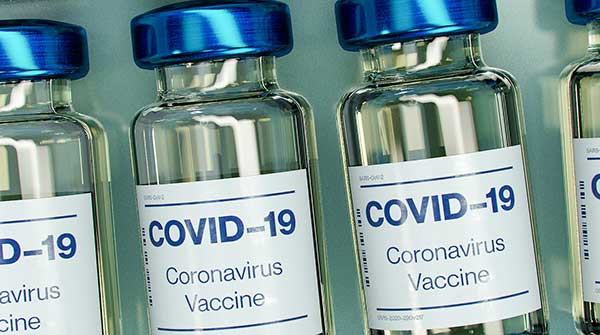University of Alberta heads global drive to probe side effects of COVID-19 vaccines
A professor from the University of Alberta is leading a global effort to investigate uncommon adverse events associated with COVID-19 vaccines. The recently formed International Network of Special Immunization Services (INSIS), headquartered at the U of A, has united academic medical centres worldwide to delve into these “very rare” vaccine-related reactions.
In vaccine safety, adverse reactions are considered very rare when they affect less than 0.001 percent of the population. INSIS aims to comprehensively examine the reasons behind these rare adverse events, particularly in individuals who have received a COVID-19 vaccine.
The swift progress and wide dissemination of COVID-19 vaccines, aided significantly by initiatives such as Operation Warp Speed launched by former U.S. President Donald Trump in May 2020, have been particularly profound, with an estimated 20 million lives saved during the first year of their rollout.
 Karina Top |
 Robert Chen |
 Jakob Cramer |
 Photo by Daniel Schludi |
| Related Stories |
| New study raises concerns over mRNA vaccine safety
|
| Covid vaccine wrong approach to Covid pandemic
|
| Trust the science? Here’s what the science really says
|
Karina Top, a professor specializing in pediatric infectious diseases at the University of Alberta, is leading this global initiative alongside Robert T. Chen, the scientific director of the Brighton Collaboration, a prominent nonprofit organization dedicated to vaccine safety.
Top emphasized the stringent safety standards vaccines must meet, as they are administered to healthy individuals to protect them from illnesses. “We don’t want these events to occur, and we want to understand why so we can prevent them in the future,” she stated.
INSIS has secured substantial funding to support in-depth research into why these extremely rare adverse events occur and identify the groups most at risk. Beyond understanding the causes, the network aspires to contribute valuable insights that will aid manufacturers in developing even safer vaccines.
Very rare adverse events related to vaccines typically come to light after vaccines have been administered to a large population. Clinical trials usually involve a relatively small sample size, which may not fully represent the diversity of the population that ultimately receives the vaccine post-approval. As millions of people receive the vaccine, a broader range of individuals with varying health conditions and genetic backgrounds may be exposed, allowing for the detection of extremely rare adverse events.
The INSIS team is poised to employ cutting-edge techniques to analyze the cellular and molecular components in human blood samples. This will help identify how a vaccine may trigger an adverse event. The network will amass an unprecedented amount of data from around the world, comparing information from those who experienced very rare adverse events with those who did not.
The ultimate goal of this project is to enhance the safety assessment of vaccine candidates designed to combat emerging infectious threats. This is particularly crucial for achieving the 100 Days Mission, which aims to expedite vaccine development against potential pandemic threats within a mere 100 days of their identification.
Jakob Cramer, Director of Clinical Development at CEPI, emphasized the significance of compressing vaccine development timelines to combat future pandemic threats. He noted that INSIS data would help inform health authorities about the most suitable types of vaccines for specific outbreak scenarios and populations.
Identifying risk factors and causal mechanisms for potentially serious adverse events in advance can enable the adaptation of immunization campaigns to mitigate such risks among vulnerable individuals, ultimately bolstering public confidence in vaccines and facilitating the development of even safer vaccine options.
| Staff
For interview requests, click here.
The opinions expressed by our columnists and contributors are theirs alone and do not inherently or expressly reflect the views of our publication.
© Troy Media
Troy Media is an editorial content provider to media outlets and its own hosted community news outlets across Canada.

